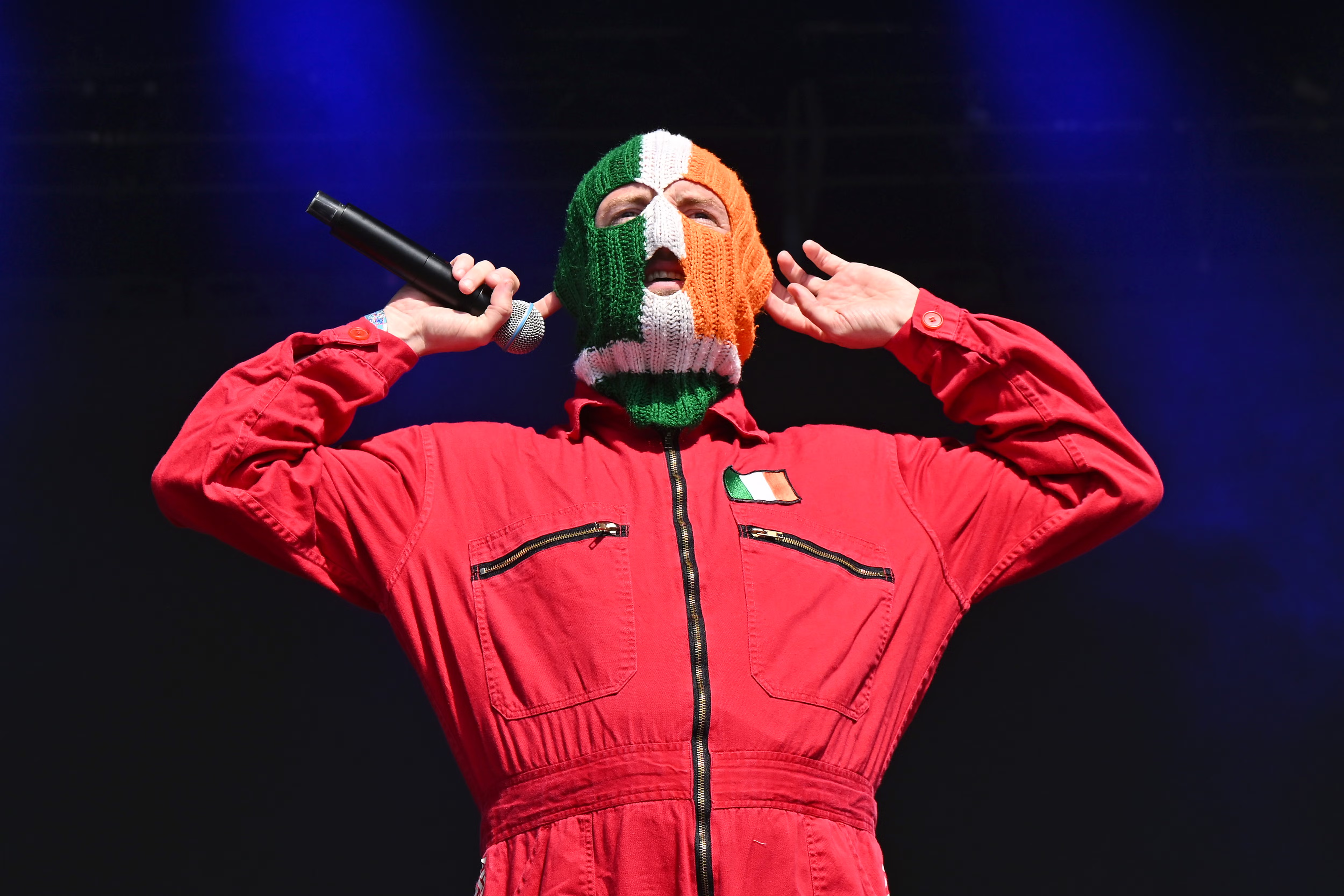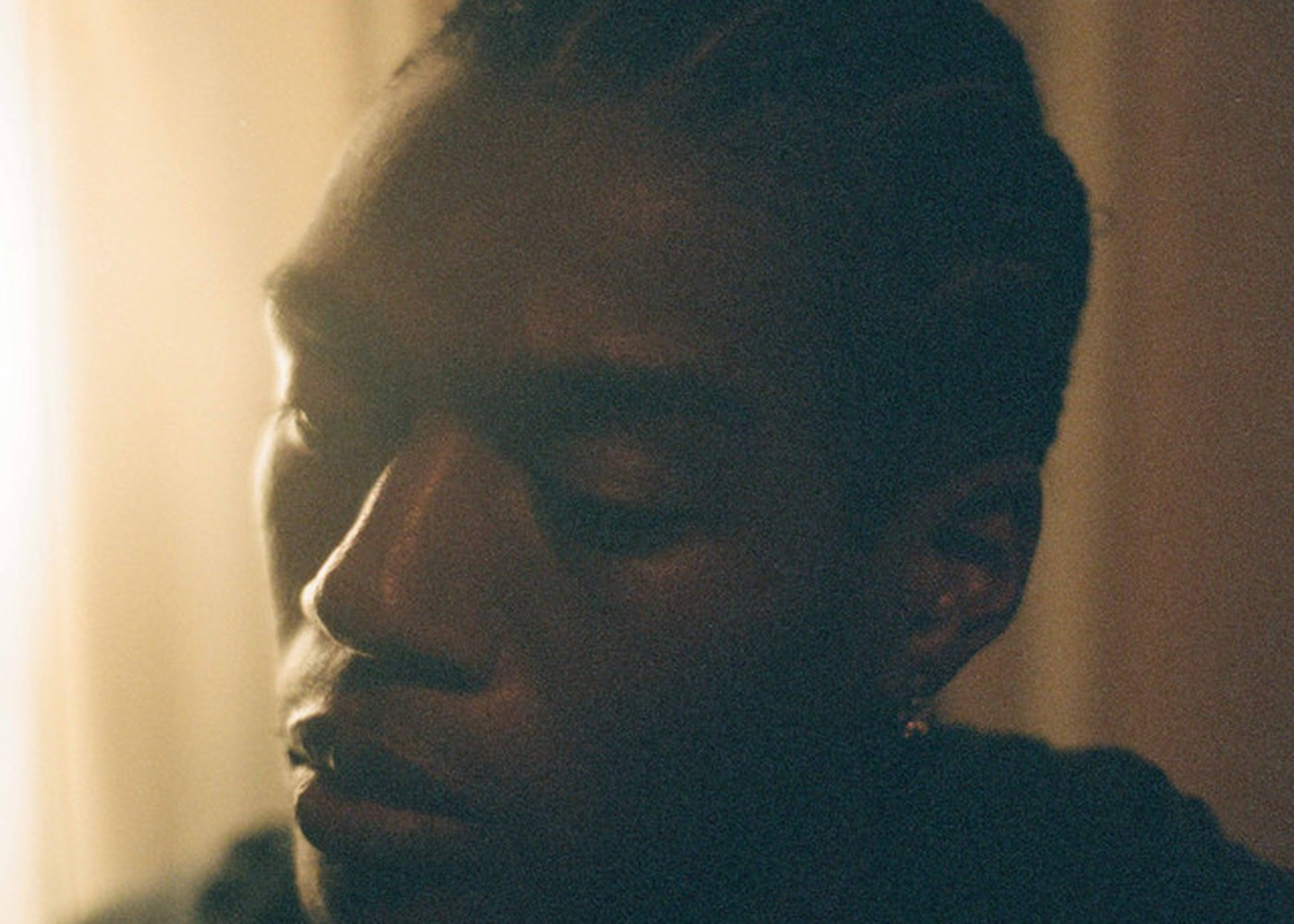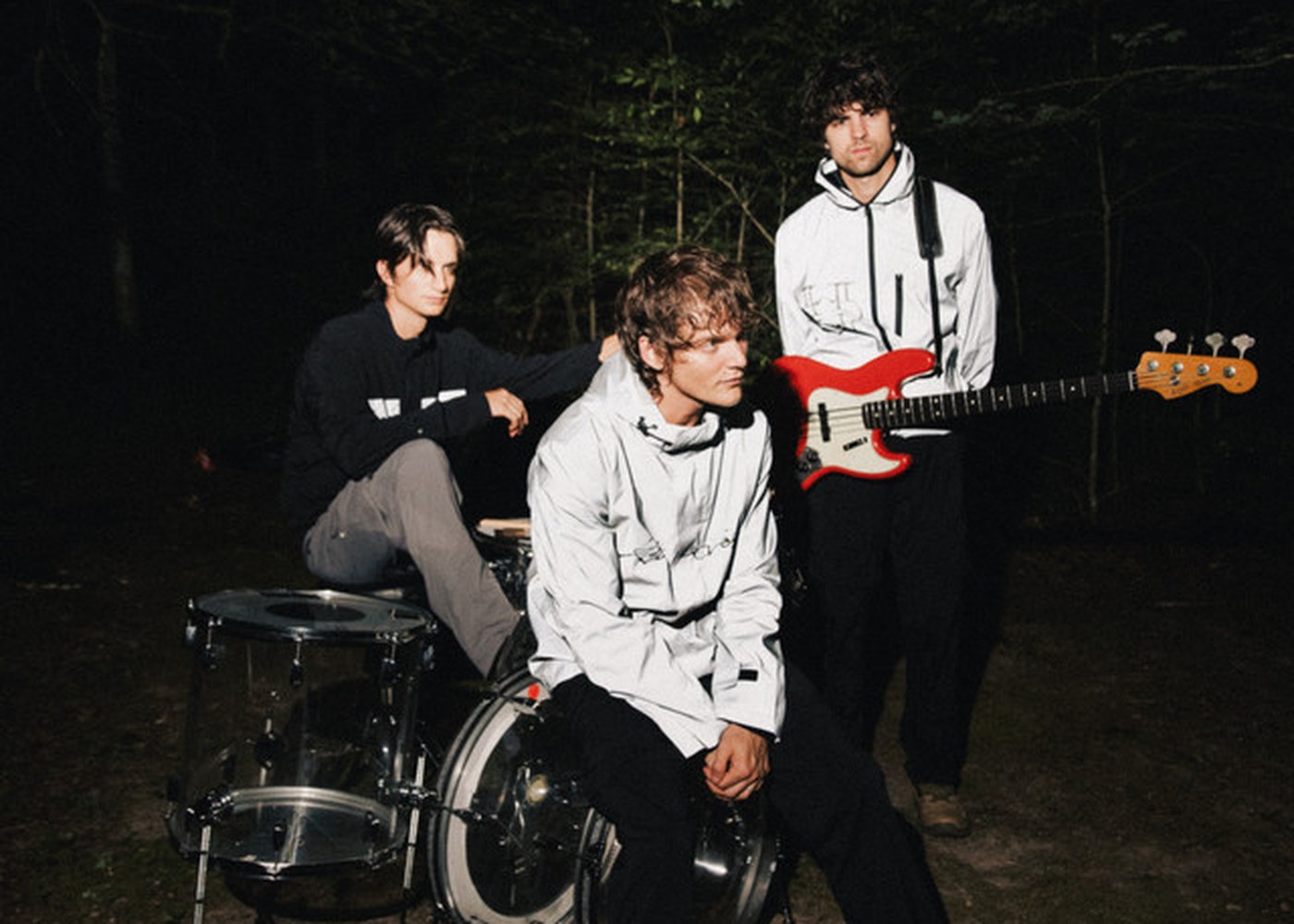Music Has Always Been Political— Glastonbury 2025 Just Reminded Us
There has always been space for politics in music. From Kneecap to Rod Stewart, here’s how some artists used the stage as their soapbox.
Glastonbury is no stranger to politics. Co-founded by Michael and Jean Eavis, the festival was built on the idea of being a place for the “expression of free-thinking people,” performances by legends such as T-Rex, David Bowie and The Cure drawing large crowds of people who not only wanted to enjoy the music, but celebrate the movements and culture that the festival encompassed. As the festival gained momentum, it established itself as a prominent voice and global platform for change and advocacy, a tradition that would continue for decades to come. Fifty-five years later, even as the mention of the word “politics” alone is enough to put a bad taste in people’s mouths, these artists are shamelessly keeping the founding ideals of Glastonbury alive.
Kneecap
The Irish hip-hop trio has always been outspoken about their views. Everything about them, from the content of their music to the fact that they rap in the previously banned Irish language, is just as heavily rooted in politics as they are in creative expression. Ireland is no stranger to oppression, and Kneecap are not shy about highlighting that, drawing inspiration from Irish rebellion artists who spoke about the brutality of British police and the desire to be free from British rule, bleeding the same principles into their music.
Aside from commenting on the continuous hardship Ireland has faced, the group, fronted by Mo Chara, doesn’t hesitate when it comes to speaking out against the ills of the world as a whole. They’re vocal about their criticism of Israel, their support of Palestine, and the ongoing genocide in Gaza, shouting their sentiments from London’s Wide Awake Festival to the Coachella stage. Even in the face of condemnation, controversy, criminal charges, and canceled shows, they rallied on, making their way to Glastonbury’s West Holts field, which they filled to its 30,000-person capacity. Dozens of attendees flew the Palestinian flag in the crowd, member-led chants expressing their distaste for U.K. Prime Minister Keir Starmer and exclaiming “Free Palestine” ringing through the open air as they challenged their critics, drawing an emphasis to the ongoing plight. Their performance was not broadcast live by the BBC following the political statements made, and their set is now under investigation by British police… not like that’s stopped them before.
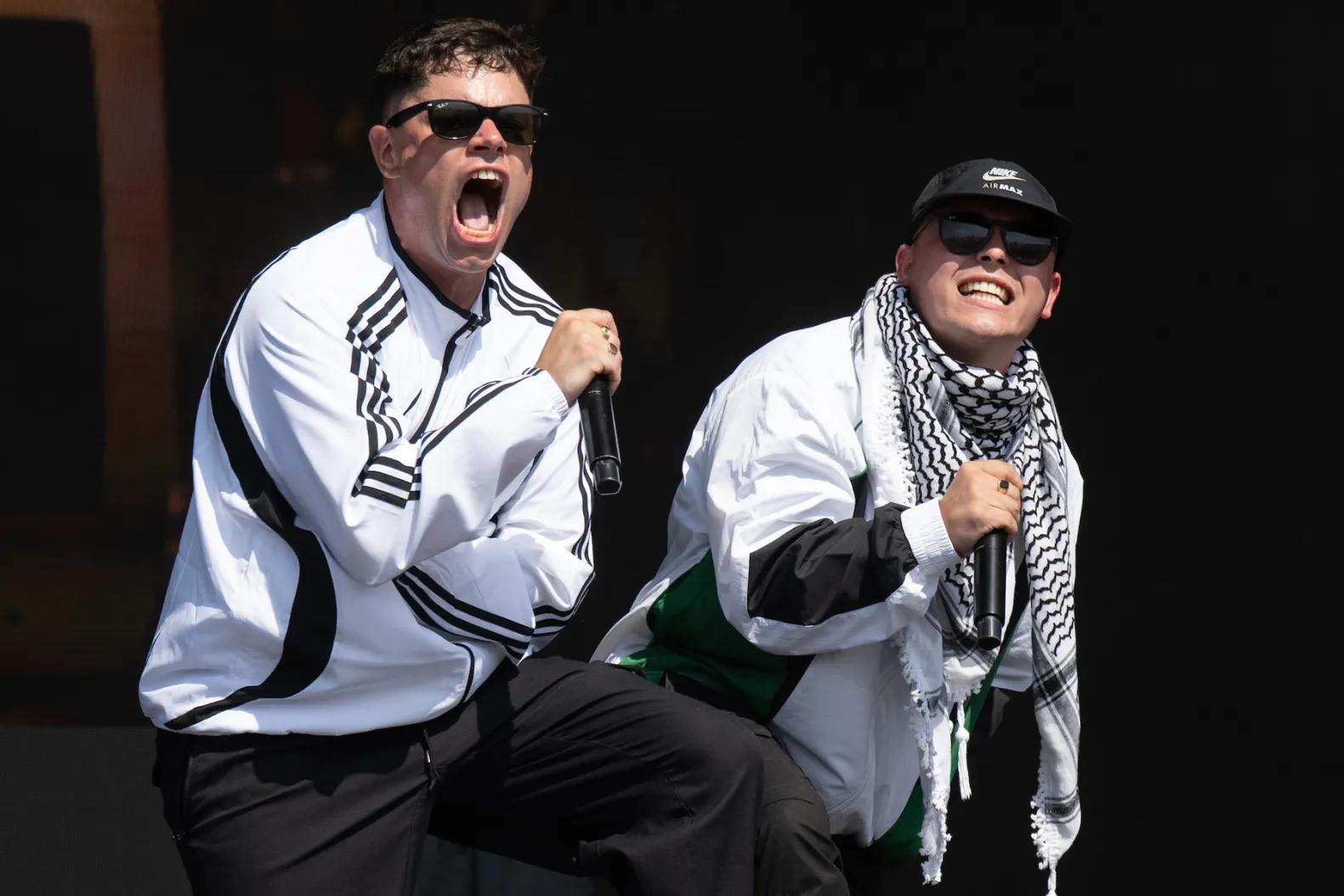
Bob Vylan
Much like Kneecap, British punk-rap duo Bob Vylan is well-known for stirring the pot when it comes to their political statements. Bob Vylan– composed of vocalist Bobby Vylan and drummer Bobbie Vylan– made their debut in 2020, making politically charged music with a heavy anti-establishment kick. Pro-Palestinian views run strong within the duo, as Bobby became involved with favoring protests from a young age, emboldened by the unity and the strength displayed in those gatherings. When it was announced that the duo would perform before Kneecap, a group with which they share similar views, a certain level of controversy was expected, especially with how their stances differ from that of British authority and the BBC, but their high-energy, outspoken set blew expectations out of the water entirely.
As members of the audience raised Palestinian flags (as they did during many other acts at the festival), Bob Vylan displayed a message in their backdrop that read “United Nations have called it a genocide. The BBC calls it a ‘conflict,’” and led the crowd in chants of “death, death to the IDF,” that would put them in headlines and hot water. Their statements were condemned by Glastonbury on their official social media sites, as well as the Prime Minister of the UK, who said the “appalling” statements shouldn’t have been given a platform, as they “incited violence.” Much like Kneecap, a criminal investigation was launched over the events that unfolded during Bob Vylan’s set, and the duo even had their US visas revoked following the ordeal.
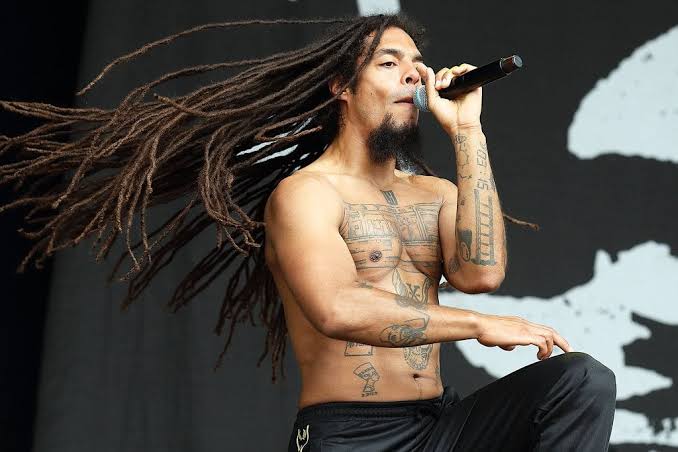
Making The Most of Their Platform
While Kneecap and Bob Vylan’s performances seemed to cause the most uproar across the media, they weren’t the only ones outspoken about Palestine, among other causes. Artists like Fontaines D.C., The Libertines, Amyl and The Sniffers, Wolf Alice, and even Rod Stewart have expressed their solidarity, criticizing governments for lack of action and the media for failing to provide ample and accurate coverage on the travesties in the world, whether it’s the war in Ukraine or the ongoing genocide in Gaza. Irish rock band Inhaler, fronted by Elijah Hewson, dedicated “It Won’t Always Be Like This” to Palestine, highlighting freedom of expression and that “there’s no better place for it than right here at Glastonbury,” which hits the nail right on the head for what people are forgetting Glastonbury represents.
Bigger Than The Music
There’s been big talk as of late as to whether or not politics should intertwine with music, or, really, art as a whole. Matty Healy of headliners The 1975 shocked people a bit with his declaration that he doesn’t want the group’s legacy to be that of politics. Green Day, punk rock legends, got some backlash for their criticism of Elon Musk and references to the genocide in Palestine during their headlining Coachella set. Artists left and right are getting reamed for using their craft as a form of expression, which calls to question what people nowadays think the point of music is. Music is not just MIDI sequencing, power chords, drum fills, and autotune. Music is commentary, and that’ll never change.
.png)





